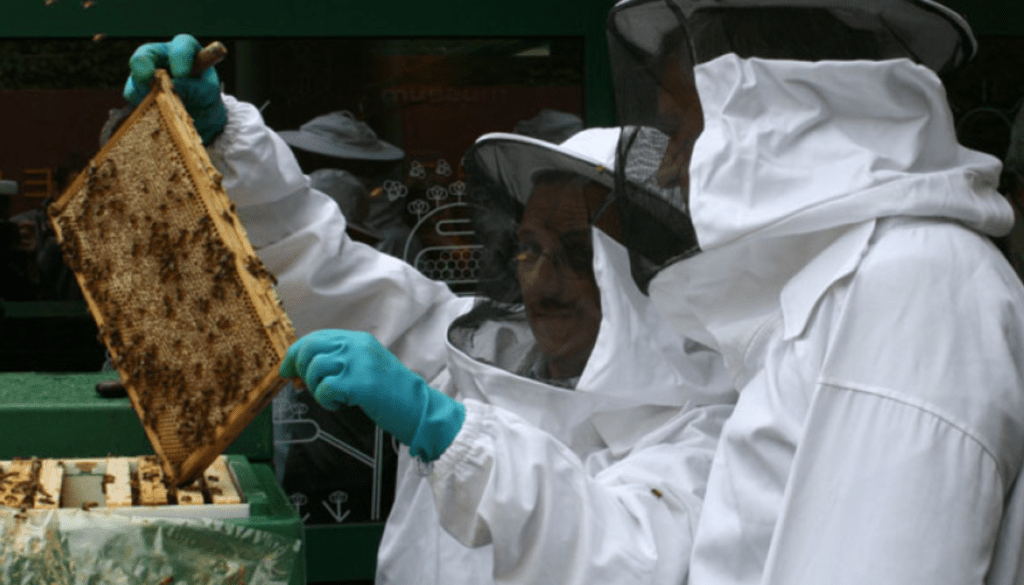Belgian beekeepers have experienced a disastrous year, with honey production 50 to 60 percent lower than last year due to heavy rainfall during flowering periods.
Beekeeper Jef Torfs, who with 1,200 hives has one of the largest operations in the country, said it rained almost every day during the summer flowering period, according to the Flemish infocentre for agriculture and horticulture (VILT).
“The first gestation still looked good,” Torfs told VILT, saying that the first bad omens appeared in May and June.
“The flower of the rapeseed stands up, and it only has to rain for a minute before the nectar dissolves in the water.”
Because of the heavy spring rains, bees didn’t have much of a chance to collect nectar for making honey, and yields dropped to around ten kilos - half of the usual 20 kilos they expect.
The summer crop brought in zero kilos, and then autumn production failed to make up for the losses.
Torfs ended his season with a yield of 25 kilos per hive, compared to a previous all-time low of 40 and a peak year of 65.
Bad yields aside, beekeepers will also have to contend with increased costs.
Due to the lack of food available for the bees, sugar water will have to be added in the winter to ensure their survival.
What’s happening to beekeepers in Belgium is also occurring in France.
According to estimates by France’s National Beekeepers' Association (UNAF), hardly 9,000 tonnes of honey will be harvested this year - a third of last year's harvest and a mere shadow of its peak in 1995, when 32,000 tonnes were collected.
“The climate change that beekeepers have been feeling for 15 years is undeniable,” UNAF said.
They’re asking the French government to recognise this year as an agricultural disaster and to compensate the beekeepers, pointing to the biological function of bees as natural pollinators.
“If there are no longer any beekeepers to maintain the hives, farmers will also see their production fall,” the French beekeepers say.
Related News
- A month from deadline, petition to save bees still short of needed signatures
- Flanders aims for more bee-friendly roadside mowing
The crisis comes on the heels of strong growth - during the pandemic, there was an increase in demand for honey.
“Honey consumption in Belgium increased by 17 percent, with some 3.2 million kilograms of honey sold in Belgium in 2020,” Koen Steurbaut, CEO of Meli, told VILT.
“Honey is an ideal ‘hamster product’ (Note: product for hoarding). It is high in carbohydrates and does not spoil. It’s also nature's production par excellence, for which there was also a lot of interest during the coronavirus pandemic.”
Belgium is estimated to have between 50,000 to 60,000 hives and 8,000 to 10,000 beekeepers, but Torfs said a distinction should be made between beekeepers and apiarists.
“Apiarists try to get the most out of their bees while beekeepers keep bees and often call it quits after a few years,” he explained.
Belgian honey production is far from sufficient to meet national demand, which means that honey in Belgian shops is also imported from South America, Southern Europe and Ukraine.

